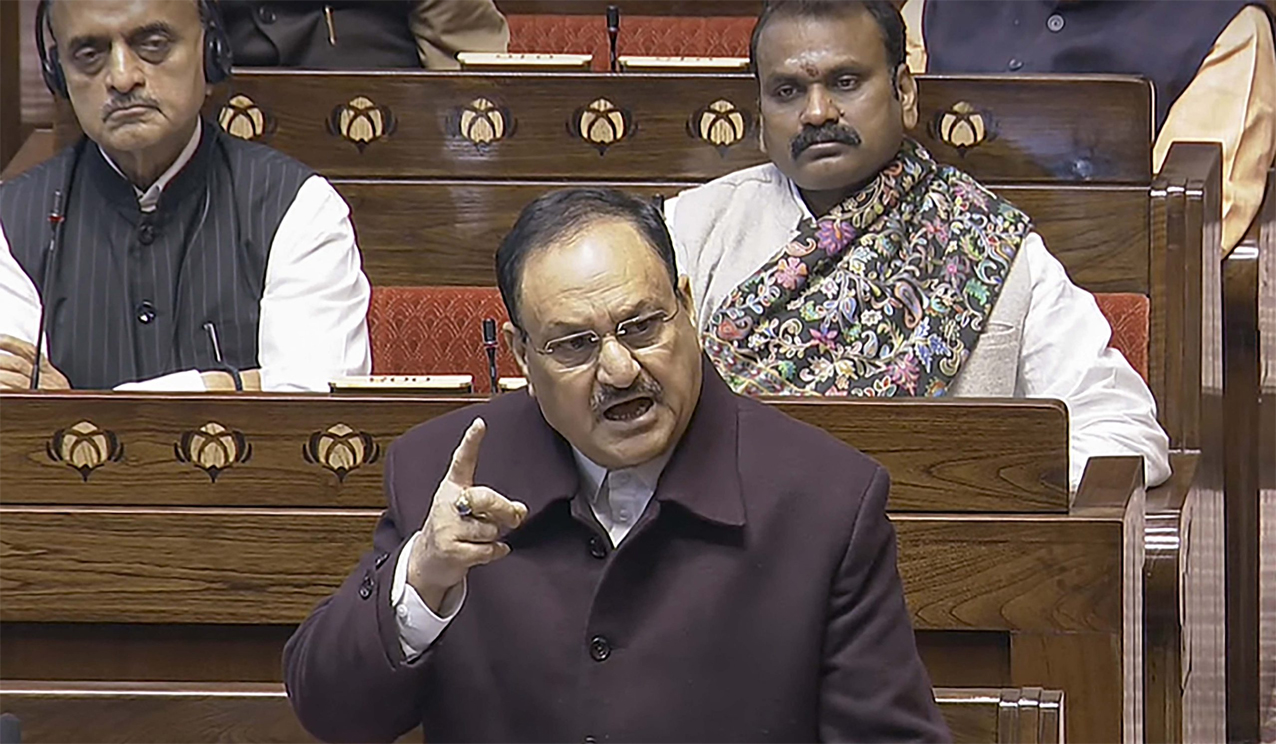| JP Nadda calls Cong to join 'Anti-Democracy Day' observance, slams emergency, Article 370 in RS | | |  Agencies Agencies
NEW DELHI, Dec 17: BJP National President and Leader of the House in the Rajya Sabha, JP Nadda, initiated a debate in the Upper House of Parliament, highlighting the significance of the Indian Constitution. He criticised the period of Emergency and invited the Congress party to join in commemorating an 'Anti-Democracy Day' if they truly regret that era We all know India is the largest democracy, but as PM Modi said, it is not only the largest democracy but the mother of democracy, and that we should understand," Nadda remarked.
Referring to the Constituent Assembly debates, Nadda highlighted how Indian culture and history played a pivotal role.
He said, "When we look at Constituent Assembly debates, we find India's culture, history, and Indian ethos deeply embedded. Indian ethos encompasses democracy, comprising freedom, acceptability, equality, and inclusivity in society, allowing common citizens to lead a quality and dignified life. This thought was deeply ingrained in the minds of the Constituent Assembly members."
Touching upon ancient scriptures like the Rig Veda and Atharvaveda, the leader underscored that concepts such as meetings, discussions, and deliberations were taken into account while drafting the Constitution, keeping India's heritage in mind.
Nadda further criticised the Congress for delaying the recognition of leaders like Sardar Vallabhbhai Patel and said that after so many years the party mentioned the Iron Man of India's name.
He said, "Sardar Patel integrated 562 princely states, but one - Jammu & Kashmir -was left to then Prime Minister Jawaharlal Nehru. An extraordinary provision was introduced, and Sheikh Abdullah was involved in Kashmir matters. Nehru asked Abdullah to consult B.R Ambedkar, but Ambedkar refused, stating, 'To give consent to this proposal would be a treacherous thing to do,' referring to Article 370."
He recalled how Syama Prasad Mookerjee opposed Article 370, famously declaring, "In one country, two constitutions won't be followed."
Mookerjee's death in prison, and his mother's plea to PM Nehru for justice, were also dismissed, Nadda added.
Nadda criticised the imposition of Article 35A through a Presidential Order, bypassing parliamentary debate. "Article 35A defined state citizenship in J&K, allowing only those who resided before 1944 to be citizens, excluding refugees from Pakistan-occupied Kashmir (PoK). Women faced discrimination, if a Kashmiri girl married a non-Kashmiri, she lost her property rights." |
|
